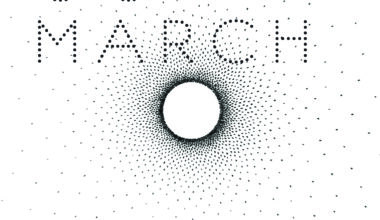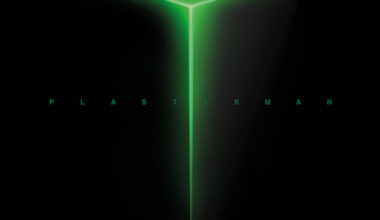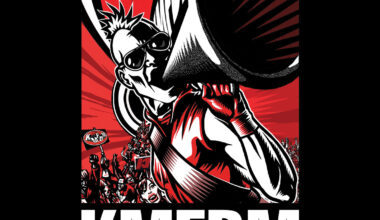Is this the album about architecture that Kraftwerk never made?

Writing about music is like dancing to architecture, someone once quipped. Heaven knows what they would think of us writing about music – music you could, if so inclined, dance to – that was itself inspired by architecture.
Jonteknik is Jon Russell, a musician and a producer with a prolific output. Lauded by Kraftwerk’s Karl Bartos, his work has often come across as an authentic homage to the Düsseldorf electronics powerhouse, full of the same sounds, textures and moods that made classic Kraftwerk such a defining unit.
For ‘Structural’, Russell leads off from his 2014 Apt collaboration with Martin Philip and peppers the album with occasional vocal tracks, either from guests such as Philip or by deploying his own voice, usually through a heavy vocoder effect. Taking its cues from landmark architectural projects – the titles include ‘Fernsehturm’, ‘Shard’, ‘The Great Wall’ and so on – the record whirls you around and through the structures that provide the inspiration for this material. You feel like you’re hovering close to iron, stone and concrete, observing and appreciating as if you’re part of an interactive field trip curated by enthusiastic Le Corbusier students. It’s effectively the album about architecture that Kraftwerk never made.
Part of what gave Kraftwerk their edge was they seemed both focussed on the most modern of technology while also being in thrall to some of science’s greatest advances – communication, motion, computers, energy, artificial intelligence. Russell works hard to capture that same wide-eyed spirit of worshipping at the altar of innovation and progress. The opening move here, ‘The Water Cube’, is a highlight, encapsulating the entire thematic impulse of ‘Structural’ in one short, discrete statement – references to steel and glass, a shimmering pulse and an electronic grandeur that induces the disorienting feeling of looking up at a skyscraper from street level; the rest of the record effectively riffs off that initial gesture.
Collaborations, as evidenced by the subtle dynamism of the track recorded with Mooly, ‘Akihabara’, which is named after the Tokyo district dominated by electronics retailers and has Japanese public safety announcements floating in and out, may be the key to Russell’s future. After all, a building like Renzo Piano’s Shard could not have existed without the expertise of a whole host of supporting engineers, contractors and planners to realise Piano’s vision. The handful of guest singers here offer up different perspectives on what we’ve come to expect from Russell, allowing him to focus on complementing the vocals rather than being the main centre of attention.
You need to persevere right through to the end of ‘Structural’ to find a departure from Russell’s familiar repertoire. The brief, austere and sombre ‘Ruin Lust’ is a haunting duet for piano and voice, containing more evocative atmospheres than some of the preceding tracks. It serves to highlight, like the Apt album, that there is much more to Jon Russell than Kraftwerk tributes, taking the form of a muted nihilism that could be the theme of Ballard’s ‘Crash’ transferred to demolition sites. More like this please, Jonteknik.





